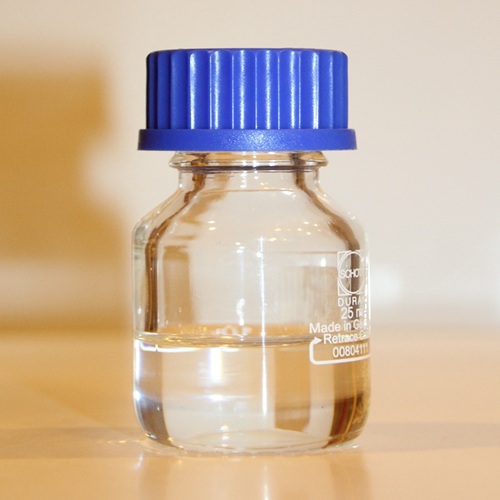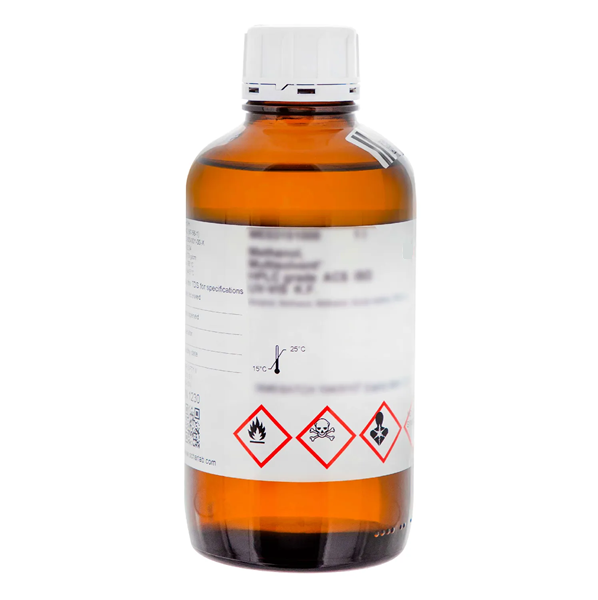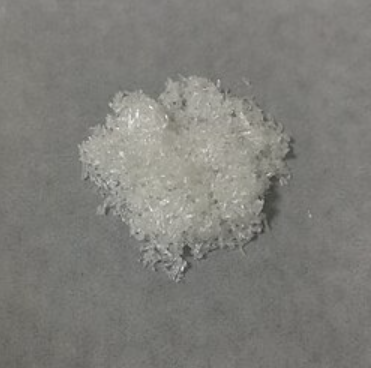C12E8
Synonym(s):C12E8;Dodecyl octaethylene glycol ether;Dodecyloctaglycol;Polyoxyethylene (8) lauryl ether
- CAS NO.:3055-98-9
- Empirical Formula: C28H58O9
- Molecular Weight: 538.75
- MDL number: MFCD00043234
- EINECS: 696-071-6
- SAFETY DATA SHEET (SDS)
- Update Date: 2025-12-17 09:50:35

What is C12E8?
Description
C12E8 is a nonionic surfactant formed by the ethoxylation of dodecanol, yielding a compound with eight repeated units of ethylene glycol. It can be used for solubilization of membrane-bound proteins.
Chemical properties
colourless solid
The Uses of C12E8
C12E8 is a non-ionic detergent used for solubilization of membrane-bound proteins.
What are the applications of Application
C12E8 is a non-ionic detergent used for solubilization of membrane-bound proteins
Definition
ChEBI: The hydroxypolyether that is octaethylene glycol in which one of the hydroxy groups is substituted by dodecyloxy.
General Description
Octaethylene glycol monododecyl ether is a nonionic detergent.
Properties of C12E8
| Melting point: | approximate 30℃ |
| Boiling point: | 585.5±45.0 °C(Predicted) |
| Density | 0.984~0.992g/ml (35℃) |
| refractive index | 1.449~1.455 (35℃/D) |
| Flash point: | 32 °C |
| storage temp. | 2-8°C |
| solubility | Chloroform (Slightly), Methanol (Slightly) |
| form | Solid |
| pka | 14.36±0.10(Predicted) |
| color | White to Off-White Low-Melting |
| BRN | 1893466 |
| Stability: | Stable. Incompatible with strong oxidizing agents. Combustible. |
| CAS DataBase Reference | 3055-98-9(CAS DataBase Reference) |
Safety information for C12E8
| Signal word | Danger |
| Pictogram(s) |
 Corrosion Corrosives GHS05  Exclamation Mark Irritant GHS07 |
| GHS Hazard Statements |
H315:Skin corrosion/irritation H318:Serious eye damage/eye irritation H335:Specific target organ toxicity, single exposure;Respiratory tract irritation |
| Precautionary Statement Codes |
P261:Avoid breathing dust/fume/gas/mist/vapours/spray. P264:Wash hands thoroughly after handling. P264:Wash skin thouroughly after handling. P271:Use only outdoors or in a well-ventilated area. P280:Wear protective gloves/protective clothing/eye protection/face protection. P310:Immediately call a POISON CENTER or doctor/physician. P362:Take off contaminated clothing and wash before reuse. P302+P352:IF ON SKIN: wash with plenty of soap and water. P305+P351+P338:IF IN EYES: Rinse cautiously with water for several minutes. Remove contact lenses, if present and easy to do. Continuerinsing. P332+P313:IF SKIN irritation occurs: Get medical advice/attention. P405:Store locked up. P403+P233:Store in a well-ventilated place. Keep container tightly closed. P501:Dispose of contents/container to..… |
Computed Descriptors for C12E8
New Products
Indole Methyl Resin tert-butyl 9-methoxy-3-azaspiro[5.5]undecane-3-carboxylate Boc-His(Boc)-OH 2-CTC Resin 4-Chloro-7-tosy1-7Hpyrrolo[2,3-d]pyrimidine 5,7-Dibromo-1H-indole 2,5-dichloro-N-hydroxy-4,6-dimethylpyridine-3-carboximidamide 2,2-Dimethoxy-7-azaspiro[3.5]nonane hydrochloride 4-chloromethyl-5-methyl-1,3-dioxol-2-one (DMDO-Cl) R-2-BENZYLOXY PROPIONIC ACID 1,1’-CARBONYLDIIMIDAZOLE 1,1’-CARBONYLDI (1,2-4 TRIAZOLE) N-METHYL INDAZOLE-3-CARBOXYLIC ACID 4-((2-hydroxyethyl)thio)benzoic acid 1-(TERT-BUTOXYCARBONYL)-2-PYRROLIDINONE Methyl 6-methylnicotinate 3-Pyridineacrylic acid tert-Butyl carbazate TETRAHYDRO-2H-PYRAN-3-OL 2-((4-morpholinophenylamino) (methylthio) methylene) malononitrile 3-(4-morpholinophenylamino)-5-amino-1H-pyrazole-4-carbonitrile 2,4-dihydroxybenzaldehyde 1,3-Diethyl-1,3-Diphenylurea Methyl 2-methylquinoline-6-carboxylateRelated products of tetrahydrofuran








You may like
-
 Octaethylene Glycol Monododecyl Ether CAS 3055-98-9View Details
Octaethylene Glycol Monododecyl Ether CAS 3055-98-9View Details
3055-98-9 -
 Octaethylene glycol monododecyl ether CAS 3055-98-9View Details
Octaethylene glycol monododecyl ether CAS 3055-98-9View Details
3055-98-9 -
 Octaethylene glycol monododecyl ether CAS 3055-98-9View Details
Octaethylene glycol monododecyl ether CAS 3055-98-9View Details
3055-98-9 -
 C₁₂E₈, PROTEIN GRADE® Detergent, 10% Solution CAS 3055-98-9View Details
C₁₂E₈, PROTEIN GRADE® Detergent, 10% Solution CAS 3055-98-9View Details
3055-98-9 -
 Pyridine 99.5% HPLC /UV SpectroscopyView Details
Pyridine 99.5% HPLC /UV SpectroscopyView Details
110-86-1 -
 Dibutyl PhthalateView Details
Dibutyl PhthalateView Details
84-74-2 -
 Imidazole Spot supply, competitive priceView Details
Imidazole Spot supply, competitive priceView Details
288-32-4 -
 Thiourea 99% ARView Details
Thiourea 99% ARView Details
62-56-6
Statement: All products displayed on this website are only used for non medical purposes such as industrial applications or scientific research, and cannot be used for clinical diagnosis or treatment of humans or animals. They are not medicinal or edible.
